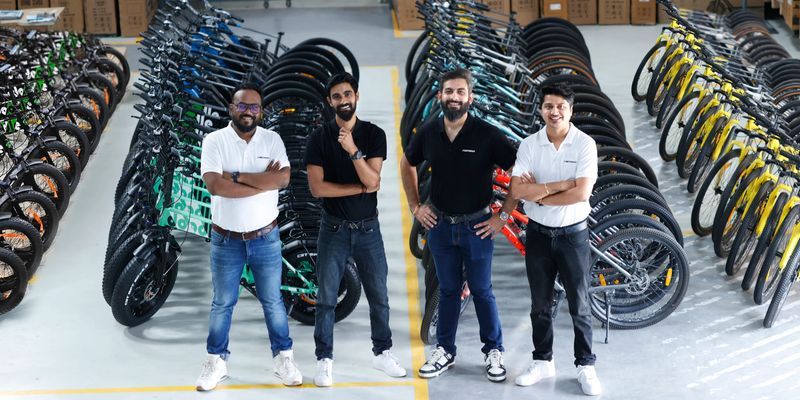How to monetise in increasingly shared economies
As the barely decade-old shared economy grows vigorously, let’s take a look at how companies can make money.

Monetisation is a word that gets thrown around quite a bit. And for good reason. Monetisation allows companies to feed the revenue beast. As any savvy entrepreneur or investor will tell you, revenue is the lifeblood of any stellar P&L. Companies simply can’t hit profitability (cash flow breakeven) without strong revenue, and thereby, healthy monetisation.
For shared economies, robust monetisation is quite possibly even more important since shared economy companies can oftentimes have significantly higher marketing and other overhead costs (read technology) when compared to startups outside the shared economy universe.
Let’s take a step back for a moment. What exactly does monetisation even mean? In its simplest form, it’s the ability for a company to get the customer or partner to pay for a service or product. Monetisation can take many different forms. The most successful companies typically have more than one monetisation stream. Uber and Airbnb are classic examples of companies that have a very strong core business but also have branched out with other monetisation models. The former has Uber Eats which is a burgeoning food delivery service that’s active across several markets. Uber has also experimented with last-mile delivery for other forms of commerce in select markets. While this is still in the very early days, Uber is leveraging off a core strength to bring in other streams of revenue to help augment their core.
For Airbnb, they’re taking a more expansive view to the shared economy as they’re now going head on with the hotels at their own game. While Airbnb has worked with partners for a long time, they now recently announced that they will be building a specific Airbnb branded building in Florida. This is a stark departure from their asset light model of either aggregating rooms, houses, or apartments. Perhaps at the heart of the decision is the strong realisation that Airbnb’s greatest asset is its brand name and its loyal customer following.
This brings up a broader point about monetisation in the shared economy. As these two examples both illustrate, having a strong brand name really goes a long way when it comes to alternative forms of monetisation. It just becomes so much easier to experiment or plug something in where it otherwise would have been quite challenging. It’s simply quite tough for many early stage start-ups in the shared economy space to pull the trigger on that alternative form of monetisation. Doing it right takes money, time, and resources. These three elements are frequently in very sparse supply when it comes to early-stage startups. It’s only as the company grows and matures in the shared economy space does it have that luxury.
Perhaps this explains why Ola’s earlier efforts in alternative forms of monetisation in the shared economy ended with a very loud thud in 2015. As Ola was engaged in a vicious, hard-nosed battle with Uber for Indian rideshare domination, they chose a curious strategy of exploding horizontally into 4-5 other business lines. This is a classic illustration that alternative forms of monetisation are never easy and, in fact, oftentimes can consume non-trivial amounts of team bandwidth away from the core business line. This is not to say that alternative forms of monetisation can never work relatively earlier on in a shared economy company’s life, but it does take remarkable discipline and a strong organisational focus to make it work.
In general, the best monetisation for shared economy startups are when the company must exert as little effort as possible to gain the maximum effort. Sounds simple enough but, practically speaking, this is quite challenging. A classic example of shared economy companies that have been able to successfully come up with alternative forms of monetisation are those found within the cycle-sharing space. Within cycling, the primary form of revenue (monetisation) comes from hourly (or half hourly) rentals to the end user. In most cases, this will end up accounting for the majority of their revenue. However, given the hyperlocal, mass distribution characteristics of the business, cycle sharing creates a unique opportunity for other types of monetisation.
For these large cycles sharing players, the key insight was that they had considerably valuable real estate available to them with their cycles. As such, they systemically approached different corporates and offered real estate on their cycles as a branding opportunity. Suffice to say, several corporates jumped on the opportunity, and for good reason. It’s a way to get associated with a business with strong CSR impact and also it gives very healthy visibility for the brand given the last mile of the cycling network. In these arrangements, it’s typical for the corporate to pay for brand access on the physical cycles but also in some cases, the corporate can take the naming rights for that particular city. This can give even more brand pop for these corporates.
The important point to note here for the cycle-sharing companies is that this revenue typically flows straight to the bottom line since there’s no variable or fixed cost against it. Instead, this just plugs in directly with their existing business and, in a way, is simply amortising the brand and the business model that has been built over time. Without question, this is the ultimate weapon for a business. Build up a brand and a distribution model that will continuously attract corporates and you may just have a very winning monetisation proposition. This is the holy grail for most shared economy startups. In these cases, if you’re able to run with relative efficiency for your core shared economy business, then the additional monetisation will be all gravy. This should always be the primary objective for a shared economy startup.
On a final note, it’s important for everyone to remember that the shared economy is still less than a decade old. As such, it’s undoubtedly going to evolve vigorously over the next several years. In this time, surely new and exciting, previously undiscovered monetisation models will emerge that will propel these businesses forward and further improve the overall economic outlook for the sector.
(Disclaimer: The views and opinions expressed in this article are those of the author and do not necessarily reflect the views of YourStory.)











